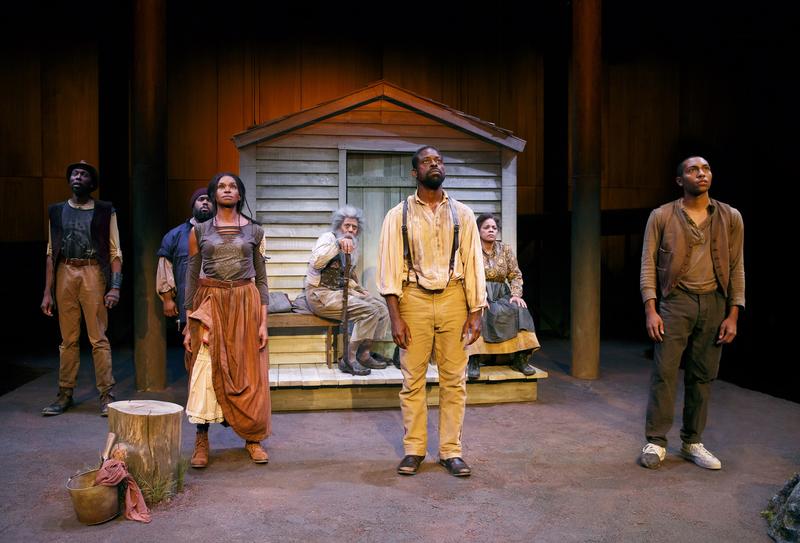
Some historical dramas immerse the audience in a you-were-there story to help you better understand the time period. But others use history as a frame to help work through a contemporary issue.
That's the case with "When Father Comes Home From the Wars (Parts 1, 2 & 3)" from Pulitzer Prize- and Tony Award-winning playwright Suzan-Lori Parks. The story focuses on a slave faced with daunting choices during the Civil War, but Parks uses anachronisms (one character wears Crocs) and allusions to classic literature in order to signal that his journey is a universal one.
Hero (a compelling Sterling K. Brown) is a Texas slave whose master has given him a choice: he can continue working the fields, or he can serve in a Confederate uniform as a personal valet. The bait: If he chooses to go to war, he will be freed.
His tale is told in three, 50-minute one acts staged in one performance; Parks intends for these three plays to be part of a nine-play cycle which extends into contemporary times.
How Hero decides to go to war, even though his common law wife (and perhaps his morals) urge him to stay home, is the basis of the first play. The second revolves around a different decision: is he more loyal to his boss, to a Union soldier his boss has captured, or to his own freedom? And the third reveals the consequences of his choices.
Parks explores the idea of freedom in a rich way that goes beyond the American-flag-apple-pie-Freedom-Tower view we're used to espousing. Freedom, she says, is complex and difficult. It can mean letting go of your own history and your past dreams for yourself; it can cost you those you love and strip you of community. And it can have a social cost.
A slave, Hero points out, is worth $800 — and he asks, "How much you think we're gonna be worth when Freedom comes?"
After a Socratic dialogue in which Hero explores who is safer — a slave belonging to an important man or a free black man in the South — he concludes, "Seems like the worth of a colored man, one he's made Free, is less than his worth when he's a slave."
This is serious stuff and at almost three hours, an audience member might wonder if they were up for a long lesson in history and moral philosophy. But this is where Parks' skill comes in. Father is funny. (Especially the extraordinary performance of Jacob Ming-Trent in the third play as an insightful dog). And intriguing. And, thanks to old-timey music arranged and performed by the charismatic Steven Bargonetti, it zips along.
Parks could have written a Civil War show that played to our comfortable pride in the Emancipation Proclamation and the rightness of the Union cause. Instead, this is a play that gets at the heart of what it means to be American: when there's no overlord to tell you what to do, a country — and individuals — must make choices every day between competing moral goods. And sometimes they're the wrong ones.
